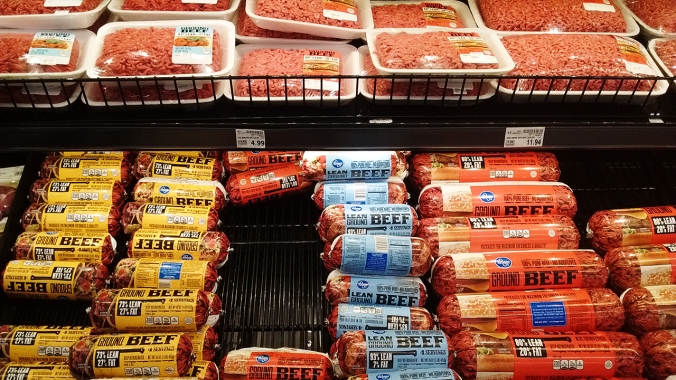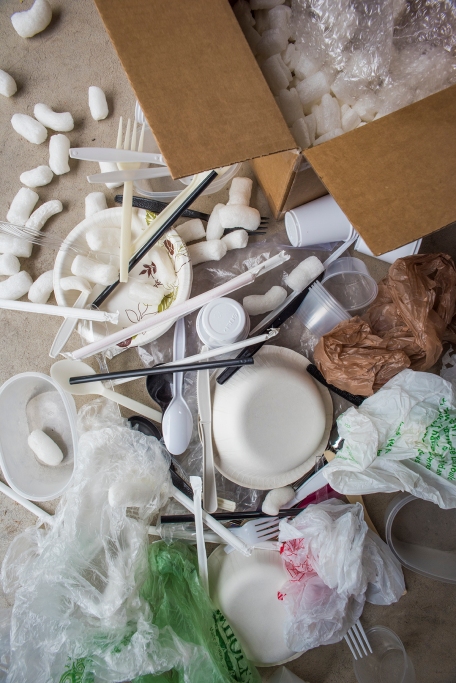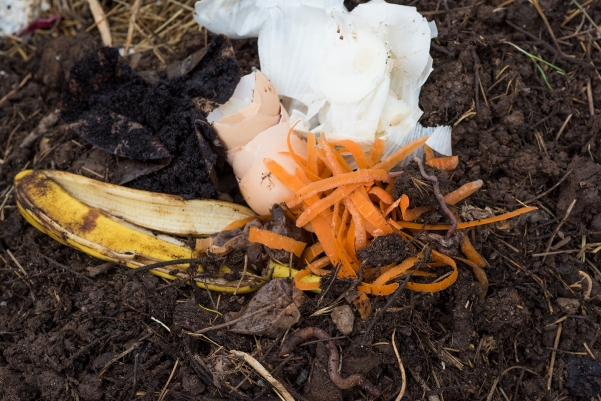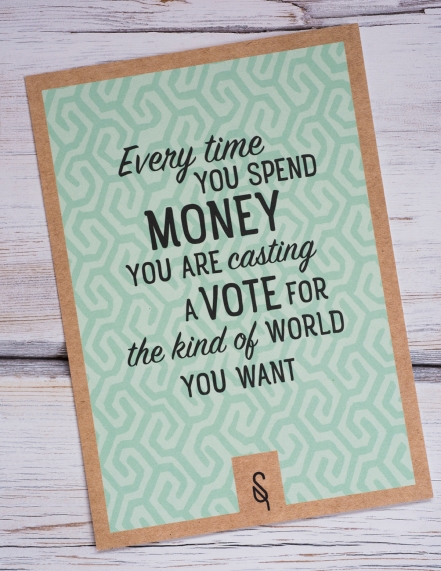Last Friday, millions of people around the world marched as part of a “global climate strike.” The march was intended to draw world leaders’ attention to the climate crisis in advance of the U.N. General Assembly taking place this week in New York City. While the sight of millions of mostly young people taking to the streets to make their voices heard is heartening in theory, teenagers in expensive sneakers carrying smartphones and pithy signs aren’t going to change the perilous trajectory we’re on.
Despite the fact that we are by far the world’s largest consumer and by extension the world’s largest polluter per capita, the U.S. is the only country in the world still debating the very existence of climate change. While other countries have their heads down working to find solutions, we’re still arguing over whether this is actually happening, and if so whose fault it is. (Spoiler alert: ours.) This disparity will be on full public view this week at the U.N.; once again, we’ll look like idiots on the world stage, a role in which we’re becoming increasingly comfortable.
Here’s the painful truth: we can’t protest the idea of large corporations destroying the planet, because we are the reason those corporations exist. If we didn’t buy their products – if we didn’t upgrade our iPhones every year, if we didn’t rob each other at gunpoint for thousand-dollar puffer jackets, if we didn’t accept and then dispose of two million plastic bags per minute – these corporations wouldn’t be able to plunder the planet. We are the problem, and by that logic we also have to be the solution.
Mental health professionals have reported a sharp uptick in the number of people seeking treatment for depression related to the environmental catastrophe we’re facing. It’s a massive, complex problem, and it’s easy to feel hopeless when confronted with its scale. On a personal level, I’ve long since graduated from severe eco-anxiety and now find myself teetering on the cliff of abject climate despair. I don’t think we’re going to be able to fix this, but we can’t choose to do nothing and watch the world implode around us. With that in mind, here are five things we can implement immediately that might just make a difference.

The absolute most effective individual action to combat climate change is to eat less meat and dairy. Raising livestock for food is one of the world’s biggest contributors to greenhouse gases; beef cattle in particular require excessive amounts of land, grain and water that we simply will not have as we approach the ten billion mark. Americans are obsessed with meat in general and protein in particular – most of us eat twice as much protein as we require for our largely sedentary lives – and our rising rates of chronic lifestyle-related diseases reflect this. Eating less meat but spending more money on it is an easy choice that actually impacts the planet.

Everyone has seen horrifying images of bloated whales with stomachs full of plastic bags, or seabirds with straws lodged in their gullets; our lazy obsession with single-use plastics has led to patches of waste in the ocean twice the size of Texas. Keeping reusable shopping bags in the car, plus a kit stocked with a water bottle, coffee mug, straw and cutlery makes this an easy crime to avoid. (And to those who claim it’s too hard to remember to bring these things? Ten years ago we didn’t remember to bring our phones everywhere. Look how easy it is to change our habits!) We’ve also got to refuse junk in the first place: no one needs another branded drink Koozie, or another pen from the bank, or another single-use cosmetic sample. These plastics aren’t degradable, most of them aren’t recycled and they’re destroying both our landscape and our wildlife. We can do better.

We talk a lot about food waste here at FQF. When 40% of all edible food is thrown out, it also wastes the water, fertilizer, labor, fuel and packaging used to produce that food. We throw food away because we don’t value it, because we didn’t grow or produce it ourselves, but we’re staring down the barrel of a future in which we won’t have any food to waste. Buy less food and use it more thoughtfully, especially as we approach the gluttonous overconsumption of the holiday season.
Our landfills are jammed with food, lawn clippings and other organic matter that could easily be composted, but most of it isn’t. Starting a home compost pile is an easy way to reduce household trash, plus it’s free and makes the best garden fertilizer that money can’t buy. Compost piles aren’t smelly or messy when handled correctly, and they dramatically reduce the amount of methane generated by landfills.

I’m an obsessive (some might say unhealthy!) collector of gloomy environmental statistics. Did you know that 50,000 mattresses are disposed of every single day in the U.S.? Perhaps if we were a little better about considering the end-of-life phase of what we buy, we’d buy less. One-click ordering has made impulse shopping an easy, almost thoughtless act, but we never consider what we’ll do with all these purchases when we’re done with them. Thrift stores and charitable organizations are now turning away donations; we watched a small local charity here fill three roll-offs with perfectly salable excess donations they didn’t have room to store. Our landfills in the U.S. will be full in twenty years and probably less, and still we generate more and more trash. Before buying anything, we have to give more thought to that product’s entire lifespan – we’ve lived a long time throwing things “away,” but there isn’t any away. There’s just here.

And finally, vote. Vote thoughtfully every single day. Elections are not just for November or every four years; they occur every time we take out our wallets. Plenty of people choose not to vote; the most typical argument is that “my vote doesn’t count.” But our votes do count – not only in an official election, but with every single purchase we make. Buy secondhand. Grow your own food. Avoid single-use disposables. Skip the free samples. Drink tap water, not bottled. Borrow or rent instead of purchase. Refuse excessively packaged products. Start composting. Don’t impulse-shop. Buy better meat and eggs and dairy. Vote early, vote often and spend money to buy the kind of planet we actually want to live on. Small actions do add up, and it’s certainly better than doing nothing at all.
Very well said! Big money will be the downfall of this planet. I’m like you, thinking it is or really close to too late. We had a climate scientist speak at one of our CMG classes, He said once the carbon is up there, its there to stay.
LikeLike
Jim, I really wish I had any hope for the future. I honestly do. But I cannot see us getting out of this one, sadly.
LikeLike
Thank you for a well written article…..I too struggled with saddened thoughts about our current environment- I decided that I can only control what is within my world. So I have taken the Gandhi approach and try to be the change I want to see. I do this through almost all of your suggestions and attempt to educate people along the way. It may not be enough but I am counting on a ripple effect! Lastly, VOTE! it is do crucial. Thank you again Elizabeth!!!!
LikeLike
Thanks, Karen. I’m obviously really struggling with this and am trying to be more and more conscious of all of my choices. I think it’s by far the biggest challenge we’ll face, at least in my lifetime.
LikeLike
Really appreciate your comments and concerns, Elizabeth. We are facing a difficult time ahead, indeed.
LikeLike
Thanks for reading, S. I so much hope that there is some optimism about the climate crisis to be found somewhere.
LikeLike
Pingback: Farm update: September 30 | Finding Quiet Farm
My comment is similar to Karen’s. I become so bothered by the absolute waste I see constantly but what I can do is think about my choices AND teach my kids to make the same choices to help the climate. The ones that I personally do that I think made/makes to biggest difference is that I used cloth diapers for both my kids, we compost, never buy bottled water (seriously would rather be dehydrated) and I rarely ever use single-use plastics in my kids’ lunches. I am trying to teach my kids they do not need or it is wasteful to collect all the constant little items handed out to kids and I no longer do party favors at my kids’ birthday parties (unless edible or useful). Thanks for listing a few simple things that we can do that will hopefully make a difference.
LikeLike
Thanks for your comment, Sara. Everyone has to make their own choices and I need to focus on what I can control, not what I can’t. I just wish it mattered more to people.
LikeLike